Where To Begin
Home » Where To Begin
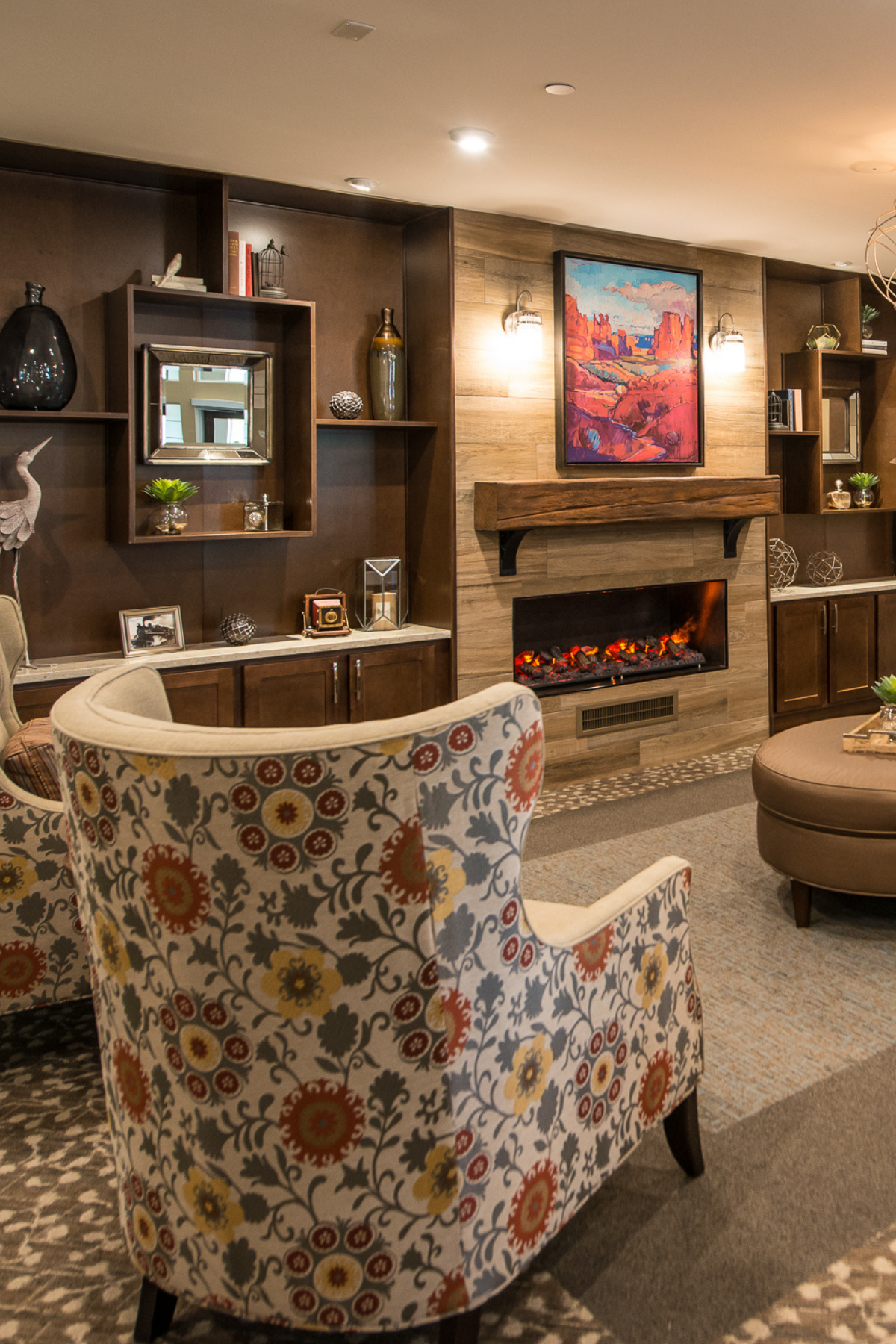
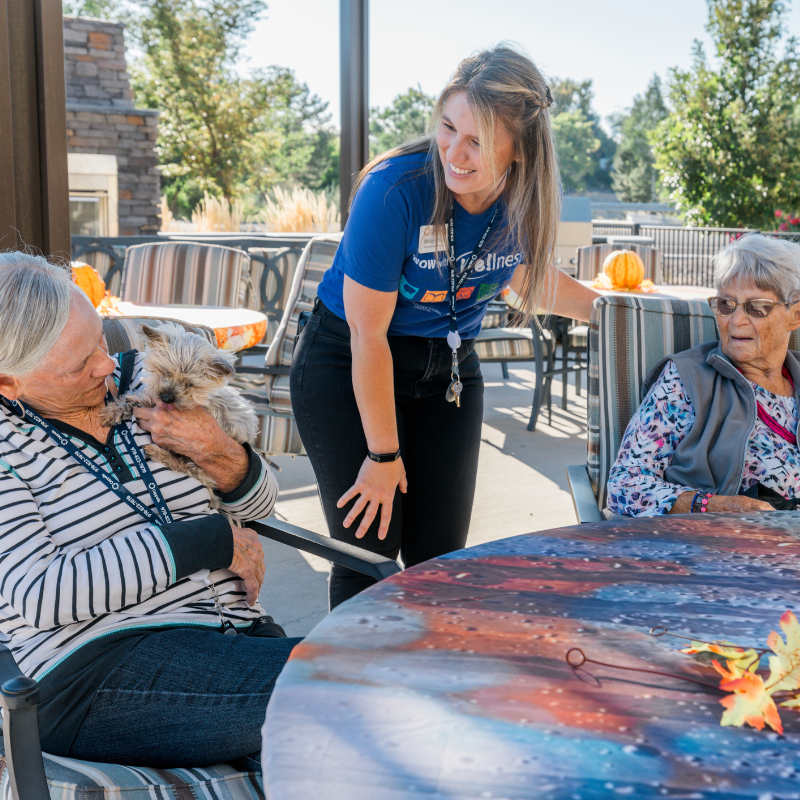
Where to Begin When Considering Assisted Living or Memory Care
If you are noticing that you or your loved one may benefit from additional support, we are here to help you understand where to begin. Both assisted living and memory support can open doors to new possibilities, offering peace of mind in knowing that your loved one is well cared for, reducing isolation and loneliness, and providing enriching programs and events.
Beginning your search for the right senior living community can feel overwhelming. We have compiled information and resources to help guide you through the process, provide valuable insights, and give you an idea of what to expect as you continue on this journey.
Start Here
Click on any of these sections to learn more about beginning your search for the right senior living community.
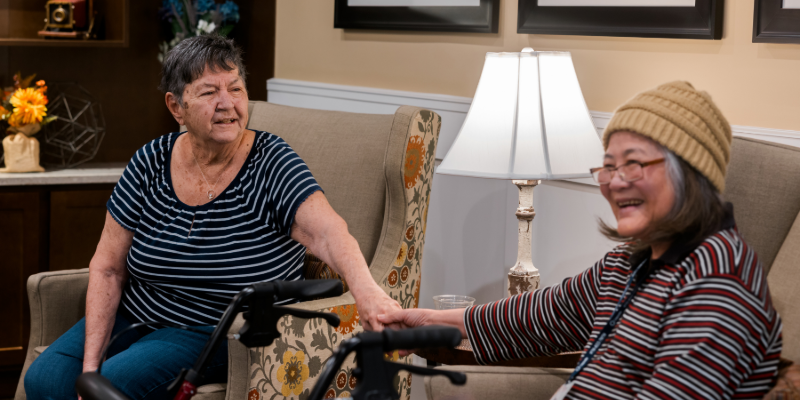
The Benefits of Community Living
A supportive community life can bring purpose and a sense of belonging to older adulthood.
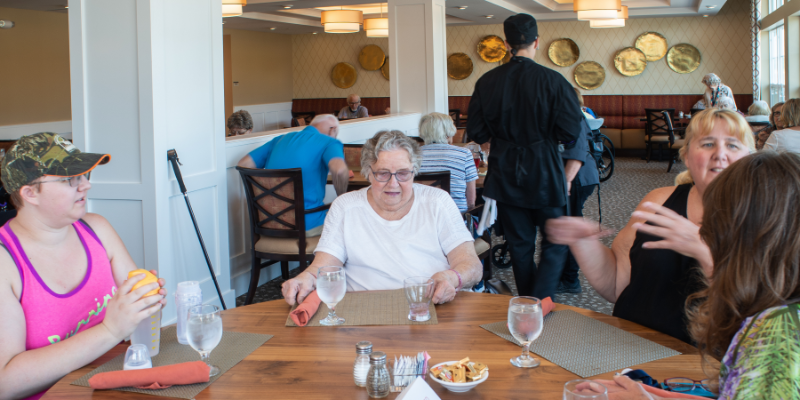
Talking About Senior Living
If you have noticed changes in your loved one, it may be time to talk to them about their future.
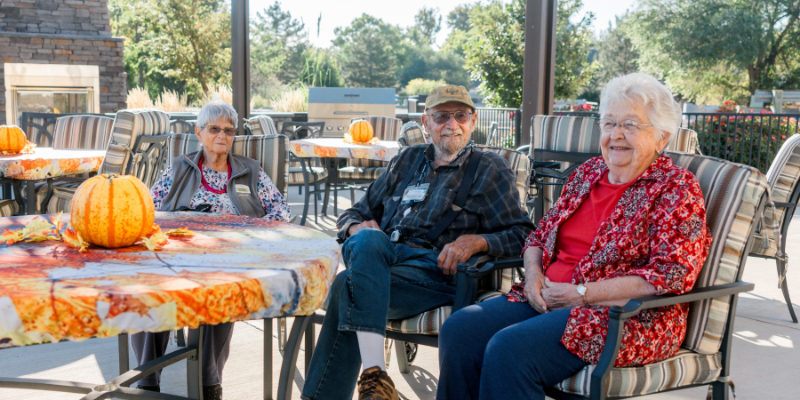
Finding the Right Community
With a few helpful tips, you can make your senior living search efficient and enjoyable.
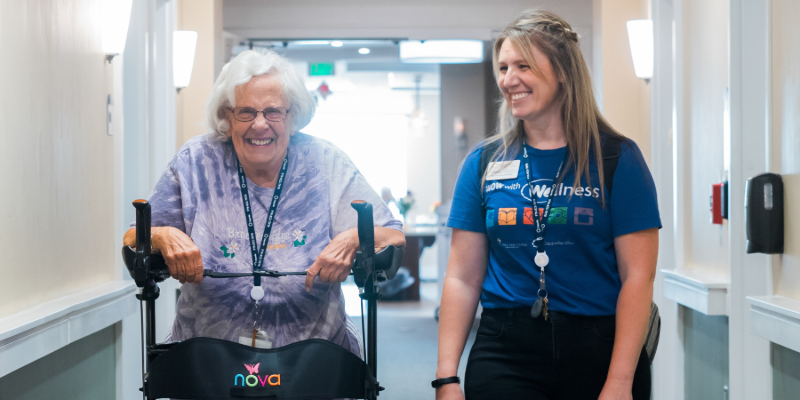
Differences Between Senior Living Care Options
Learn how assisted living, memory support, and skilled nursing communities differ.

Cost of Senior Living
Understand the different senior living pricing models and what those costs include.

The Benefits of Community Living
The CDC has found that the impacts of loneliness and isolation on physical and mental health are measurable, especially as we get older. Community living by definition directly combats the effects of loneliness and isolation, as well as helplessness or the feeling of being without purpose. Opportunities to nurture meaningful friendships, contribute our gifts, and pursue lifelong growth and learning help us to experience a rich older adulthood.

Talking with a Loved One About Senior Living
For many of us, it can feel intimidating to consider talking to our parents or loved ones about senior living options. If you have noticed changes in your parent(s), if they need more assistance than you can provide, or if they have received a medical diagnosis for which they’ll need long-term care, now is the time to talk to them about their future. Beginning the senior living research process in advance, considering when to broach the topic, and expressing feelings instead of fears can help you and your loved one navigate this important discussion.
Take the Assessment

How to Find the Right Senior Living Community
Before you begin your search for the right senior living community, consider listing your non-negotiables – whether location, specific amenities, care levels, etc – and your “nice-to-haves.” This helps to keep you focused on your priorities and to compare communities based on a defined set of criteria.
Online Research
There are so many resources available to assist you in your search. Communities’ websites may include 3D tours through floor plans, resident testimonials, services and amenities, life enrichment calendars, and more. Additionally, social media pages provide invaluable insight into community life.
Take a Tour
Once you’ve narrowed your options, the best way to get a true sense of the community is by visiting in person, taking a tour, and talking with other residents and team members.
Before touring, sit down with your loved one and list questions you’d like to ask, prioritizing what is most important to each of you. This is an excellent opportunity to hear first-hand about what makes the community unique, including:
- Philosophy of care
- Care options
- Life enrichment and memory support programming
- Amenities, services, and dining options
- Pricing model
- Community culture
The community team should be able to answer your questions in depth. They are there to support you and provide you information and resources to aid in your search.
Consider a Respite or Short-Term Stay
Some communities offer extended respite stays or short-term stays, which can be beneficial for both older adults and caregivers. Older adults get to test the waters of the community and experience community life, while caregivers can take a break from their caregiving duties knowing their loved one is comfortable, safe, and in a welcoming environment.

The Differences Between Assisted Living, Memory Support, and Skilled Nursing Care
Assisted living communities are designed to empower older adults to live as independently as possible, while offering a customized level of support with activities of daily living (ADLs). This may include support with eating, medication reminders, and personal hygiene.
Memory support, also called memory care or dementia care, is specialized care tailored to individuals living with Alzheimer’s disease or other dementias. Memory support resembles assisted living care, but extends beyond the focus on activities of daily living to encompass the emotional well-being and safety of the resident. Memory support communities focus on creating a safe, nurturing environment and fostering a sense of purpose and familiarity for individuals living with dementia.
When around-the-clock nursing care is needed, such as wound care, medical monitoring, or specialized therapy or rehab, a skilled nursing community can provide that care.

The Cost of Senior Living
The average cost of assisted living in the United States is around $4,000 to $7,000 per month. Many senior living communities offer different pricing models that can make it challenging to do an apples-to-apples comparison of cost. Some communities will have a large entrance fee and others will be rental-based. Some may have monthly costs that are based on the level of care and support needed, while others are all-inclusive.
It’s helpful to start with an understanding of your current costs of living at home, including mortgage or rent, homeowner or renter insurance, utilities, property tax, groceries, home care, etc. Senior living pricing typically includes meal options, utilities, housekeeping and laundry services, cable and WiFi, community amenities, and life enrichment programming.
Take the Assessment
We Are Here to Help
The Cappella of Grand Junction team is here to help answer your questions, provide support, and offer information and resources to aid in your search.
Please contact us using the below form to learn more about our Western Slope senior living community.
